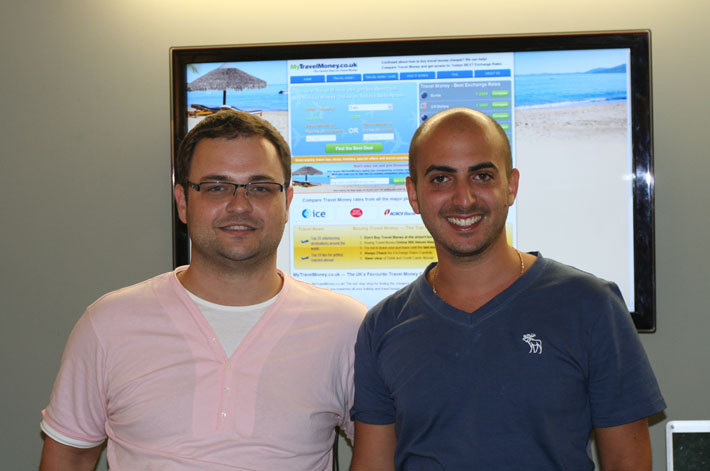How did you come up with the idea?
Four years ago, I was on an exchange programme at the University of Sydney and got ripped off on my travel money and international payments. Like many of my classmates, we found currency exchange to be a complicated, opaque and extremely expensive process.
My co-founder experienced the same foreign currency headache, and we actually met on a website that matched technical entrepreneurs to commercial entrepreneurs. We worked out that on each travel money order, we’d lose up to £50 on every £500 exchanged through poor exchange rates.
We were sure there was a better deal out there in what is a $400 billion a year industry. Our ultimate vision is to make finding a cheap money transfer or travel money deal as easy and quick as booking a plane ticket online.
How did you finance it?
The business has been totally self-funded to date. On the one hand, it’s limited our ability to grow as quickly as we’d have liked. However, we are focusing very hard at the moment on improving the product and user experience. We get angels and VC’s approach us weekly in the tech community, but we’re growing organically and are cash generative. We recognise currency exchange is a very hot space at the moment with regards to investment, and fundraising will be on our radar in the latter part of the year.
How did you market it?
A large proportion of our traffic comes from inbound marketing and educating consumers on currency choices. Through partnerships, good quality content, social media and guest blogging, we reach more than 100,000 visitors per month and growing. Our in-house PR team have established close contacts with key personal finance, expat and travel journalists. We’ve had some good coverage in quality newspapers.
Social media has been very hard work, but ultimately extremely beneficial. Twitter has allowed us to establish one on one relationship with key influencers in our target markets. We see it as a phenomenally powerful business development tool, and some of our most lucrative partnerships have started with a banter-fuelled Twitter conversation.
What challenges have you encountered along the way?
As a very small team starting out, we needed to muck in and perform tasks that we wouldn’t otherwise like to do. Over time, we’ve learnt the hard way to delegate and put in place processes for our staff to shine. Not raising money also limited our ability to grow the user base as fast as we would have liked. However, we wouldn’t have done it any other way.
After all, I am a firm believer that it’s a lot more effective to set out plans, targets and procedures to staff once you have stepped in those shoes yourself. So from accounting to partnership development, only by performing and seeing the workings of those functions first hand, entrepreneurs are in a much more effective position to delegate out.
What are your growth plans?
Our comparison model means we take a cut on each transaction, and it’s enabled us to be revenue generative very early on. Over the course of the last 12 months, revenues have grown 400 per cent in our second year, we made a £117,530 pre-tax profit. We expect our headcount to increase to 12 people by the end of the year.
What piece of advice would you give to aspiring entrepreneurs?
Draw up a list of key influencers (people that get can you publicity) very early on. These could be bloggers in your niche or prominent journalists. If you truly love and believe in your product, reach out to these key influencers and explore how you could be written about. At worst, you’ll get great feedback, and at best you will get good exposure for your product.
Also, don’t delay a new version of your website or product launch for too long. You can launch a minimum viable product very quickly and learn fast from the behaviour of your visitors. After all, you can build all the features in the world, but if nobody wants them, it’s wasted time.





